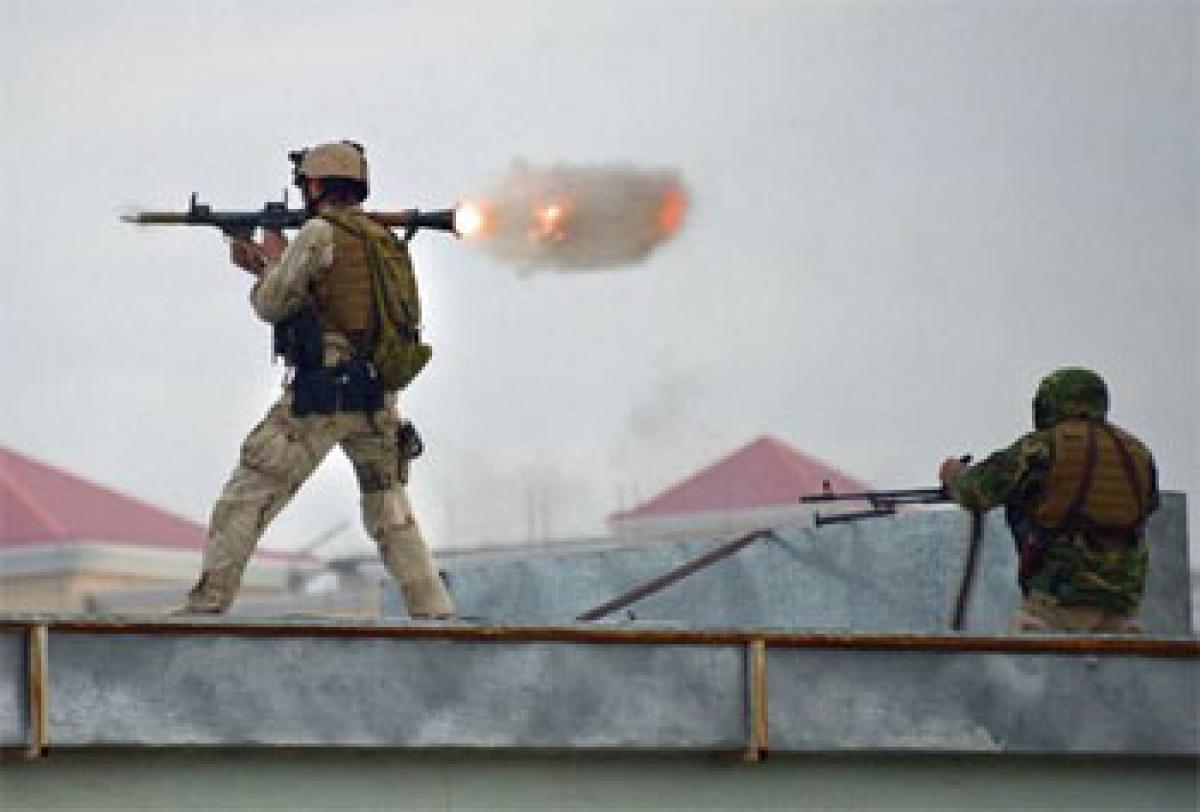Live
- Winter Session of Parliament Begins with Key Bills and Heated Debates
- BGT 2024-25: India begin trophy defence with triumph over Australia in Perth
- Supreme Court trashes pleas challenging insertion of ‘Socialist’, ‘Secular’ in Preamble to Constitution
- iPhone production reaches $10 bn in India in April-Oct, creates 1.75 lakh direct jobs in 4 years
- Australian govt orders national review into school bullying
- Isro's Busy End to 2024: Key Space Missions, Including Spadex and Proba-3, Planned for December
- Rajaka Udyoga Sangam new committee elected
- Astronauts Stuck in Space: Sunita Williams and Barry Wilmore's Mission Extended Until February 2025
- 'Muslims don't vote for JD(U)', says Union Minister Lalan Singh
- St. Joseph’s organises literary fest
Just In

The terrorist strike on Indian consulate in North Afghanistan and a similar jihadi attack on an Air force base in Punjab reveal an ugly pattern. They come close on the heels of Prime Minister Modi’s visit to Afghanistan and Pakistan. History tells us the sinister forces across the border always tried to create chaos whenever there was some forward movement in Indo-Pak relations.
The terrorist strike on Indian consulate in North Afghanistan and a similar jihadi attack on an Air force base in Punjab reveal an ugly pattern. They come close on the heels of Prime Minister Modi’s visit to Afghanistan and Pakistan. History tells us the sinister forces across the border always tried to create chaos whenever there was some forward movement in Indo-Pak relations.
The fresh attack is yet again an attempt to derail the peace process in the subcontinent. The reason is simple. While the people of both the countries have peace dividends for them, the terrorists and their mentors have stakes in disturbing peace and tranquility. Religious fundamentalists, terrorists, and their military and political patrons owe their existence to anti-India rhetoric.
They fear that their social and political idiom will largely become irrelevant the moment both the nations cease hostilities and decide to work for the common destiny of their people. The leadership of both India and Pakistan should show sagacity to prevent vested interests from hijacking the peace process. The terrorist attacks obviously raise anger and anguish in India, given the fact that the country is a repeated victim of cross border terrorism.
Export of terrorism by the hostile neighbour has been an intractable issue that held the peace process hostage. Even the present ruling dispensation in New Delhi has also long propounded the thesis that Indo-Pak talks cannot inch ahead unless Pakistan gives up the policy of state-sponsored terrorism. The enemies of peace process through such extremist attacks exactly want to roll back the bilateral relations to the same point of stalemate so as to erode the gains achieved through the recent goodwill initiatives by both leaders of India and Pakistan.
Precisely here, India should demonstrate higher level of diplomatic maturity by giving further momentum to peace process to frustrate the evil designs of terror elements within and outside the ruling establishment in Islamabad. This would send a strong signal to the perpetrators of terror that their designs to destabilise the peace process would not succeed.
Both the countries would do well by focusing on low hanging issues like trade, visas and cultural contacts. Medium level difficult issues like water disputes, maritime border dispute like Sir Creek etc, should follow. Such a composite dialogue should even encompass most controversial issues like Kashmir and terrorism. Such a pragmatic approach would ensure the bilateral relations will not be held back by complex disputes.
Afghanistan and India are the common victims of terrorism emanating from Pakistani soil. India has been an active partner in the reconstruction of war-ravaged nation much to the displeasure of Pakistan. The attack on Indian consulate happened in Uzbek-dominated province where India enjoys good relations with Uzbek war lord Abdul Rashid Dostum.
State and non-State actors in Pakistan by targeting Indian strategic assets in Afghanistan do not want New Delhi to play an active role in the reconstruction of a nation pillaged and plundered by extremism since the cold war era. But, the effective response would be further invigorating Indian engagement in Afghanistan.

© 2024 Hyderabad Media House Limited/The Hans India. All rights reserved. Powered by hocalwire.com







